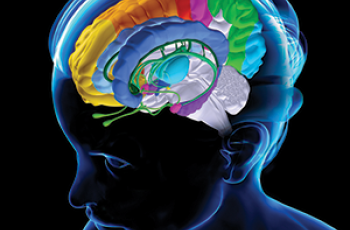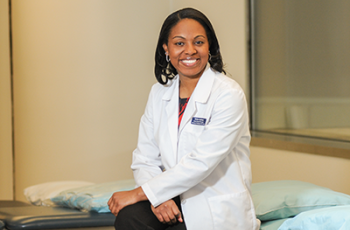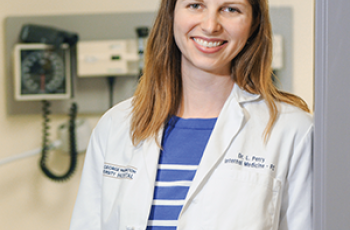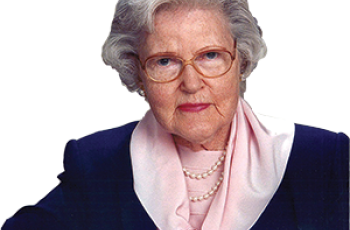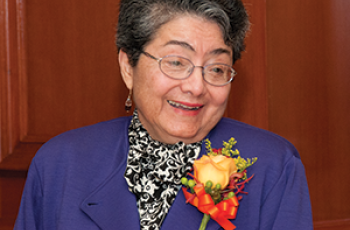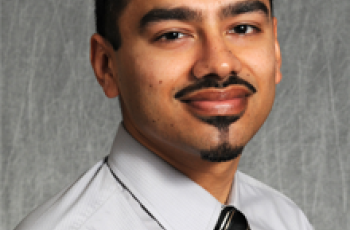Spring 2014 Issue
An 89-year-old woman is airlifted to George Washington University Hospital (GW Hospital) suffering from degenerative disease — a gradual weakening of tissues and organs due to lifestyle choices and normal bodily wear and tear.
Science sometimes makes the most unlikely connections. So it goes that a hormone most associated with pregnancy just might revolutionize treatment of traumatic brain injuries (TBIs).
Kurt Newman, M.D., Turned a Two-Year Fellowship into a Lead Role at Children’s National Health System
Brittne Jackson, M.P.H., fondly remembers Sunday afternoons spent with her grandmother Madeline Jackson, visiting her relatives at the local nursing home. “I vividly remember watching my grandmother with her sisters,” she recalls.
It was the summer after Laura Perry’s sophomore year at Harvard University when she accepted an internship at the Baltimore City Health Department, a decision that would completely alter the course of her career.
Major Gift by Ruth Uppercu Paul Funds Genetic Counselors and Patient Assistance Support
As a pathologist, Yolanda C. Oertel, M.D., RESD ’72, always tried to practice medicine using both her head and her heart.
Kabir Yadav, M.D.C.M., M.S., M.S.H.S., associate professor of emergency medicine at GW’s School of Medicine and Health Sciences, was named as one of the first board-certified clinical informaticians in the country.
A grant from the Arnold P. Gold Foundation will support a new initiative at GW’s School of Medicine and Health Sciences (SMHS) promoting mentoring opportunities and humanistic education.
As the health care debate rages on, policy-makers and physicians are trying to mend a system that many Americans think is overpriced and underperforming. “There is an urgency to create a health care system of quality care that is both innovative and efficient,” says Jesse Pines, M.D., M.B.A.


